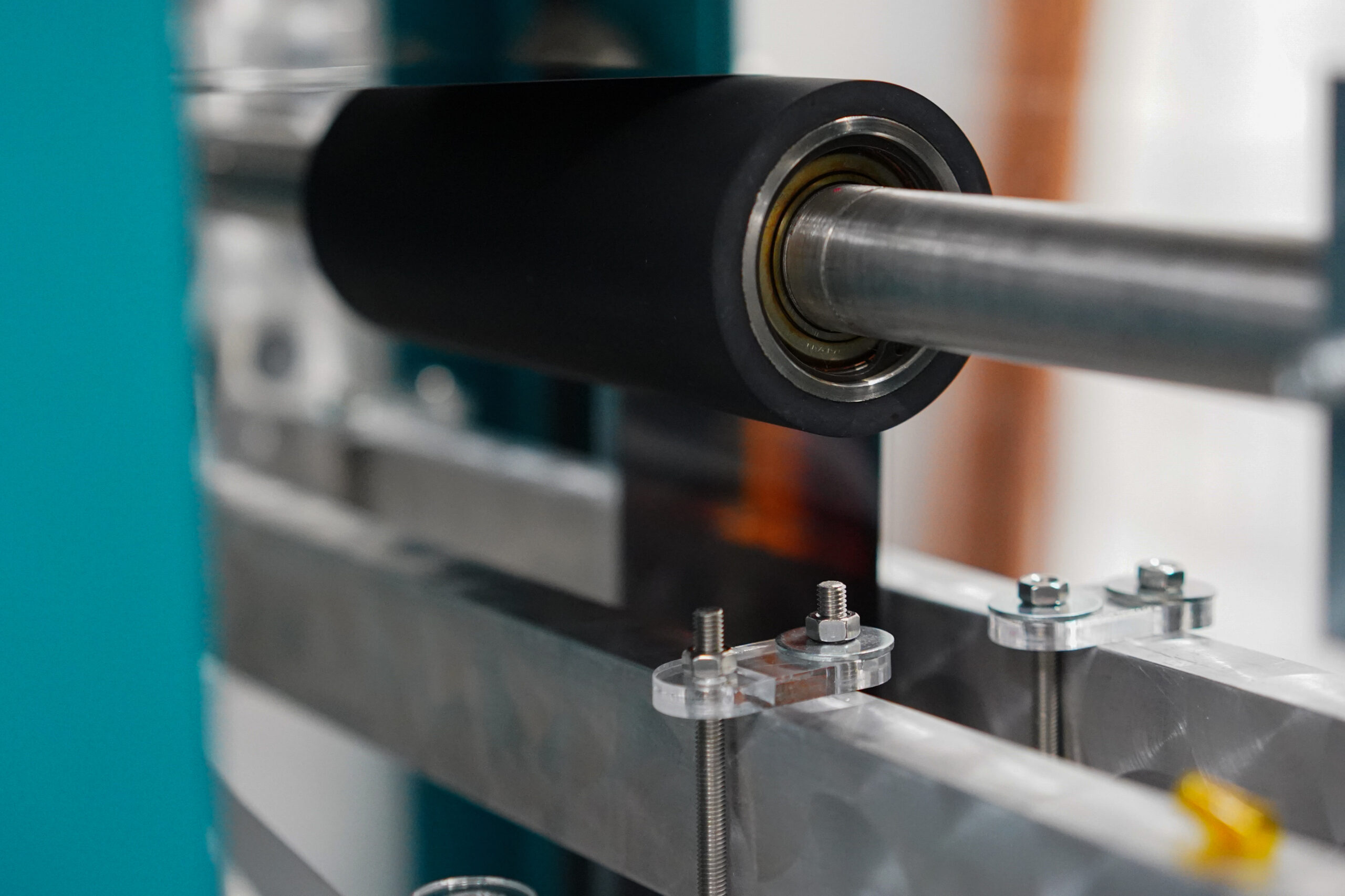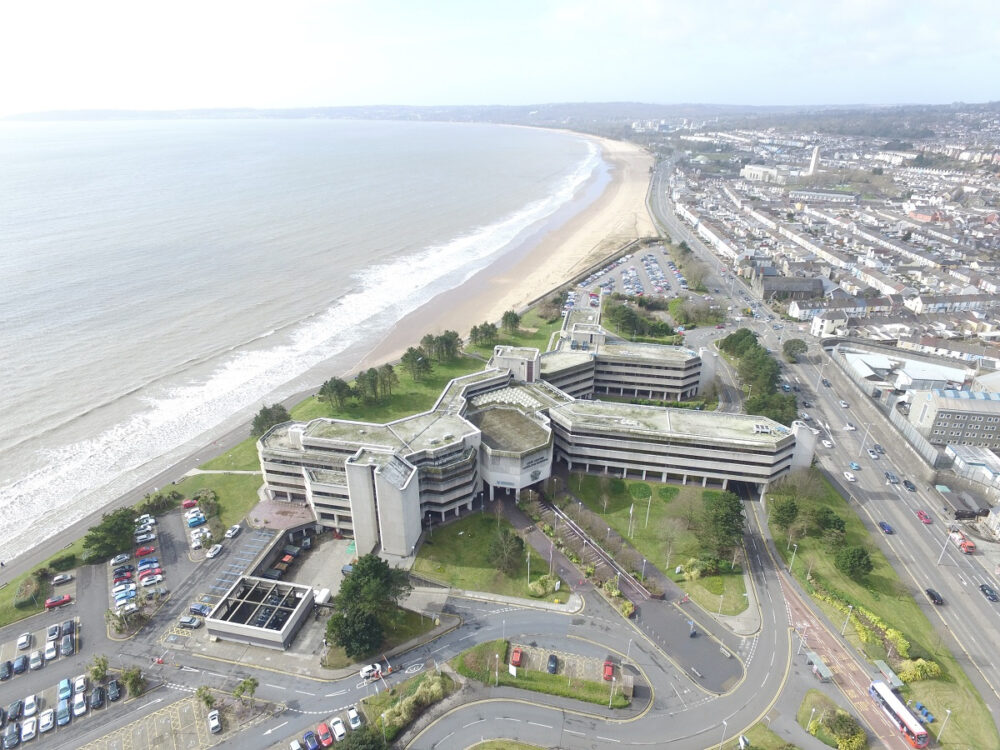Swansea University has established a low-cost and scalable carbon ink formulation capable of unlocking, for the first time, the potential for perovskite solar cells to be manufactured at scale.
Using slot die coating in a roll-to-roll (R2R) process, academics from the SPECIFIC Innovation and Knowledge Centre at Swansea University have established a way to create “fully printable” perovskite photovoltaics (PV), a term often used but, until now, incorrect.
The team searched for an alternative to the gold electrode that is typically applied using an expensive and slow evaporation process after the device has been printed.
Dr David Beynon, Senior Research Officer at SPECIFIC, said: “The key was identifying the right solvent mix, one which dries as a film without dissolving the underlying layer.
“X-ray diffraction analysis showed carbon electrode ink is capable of this when formulated with an orthogonal solvent system.
“This innovative layer can be applied continuously and compatibly with the underlying layers at a low temperature and high speed.”
Published in Advanced Materials, this new research has received funding from the European Regional Development Fund through the Welsh Government, and from the Engineering and Physical Sciences Research Council (EPSRC) through SPECIFIC and the Application Targeted and Integrated Photovoltaics (ATIP) Programme Grant.
Photovoltaic Research Lead, Professor Trystan Watson, said: “Perovskite solar cells show great promise in the drive towards cleaner, greener energy. The ability to produce a fully working device entirely in-line makes high-volume manufacturing easier and more economical and is a big step towards their commercialisation. It unlocks the idea of manufacturing process where a solar ink is added one end and a solar cell emerges from the other.”

The devices with carbon electrodes provided a similar photovoltaic performance to the conventional evaporated gold electrodes, as part of a small-scale device on a rigid glass substrate, with power conversion efficiencies (PCE) of 13-14% and the additional benefits of outperforming at higher temperatures and having better long-term stability.
The new fully R2R coated device, which was printed onto a 20-metre-long flexible substrate, produced a stabilised power conversion efficiency of 10.8%.
Dr Ershad Parvazian, Postdoctoral Researcher at SPECIFIC, said: “The most important part of this project was coating the carbon entirely, R2R, a new process of working with perovskite photovoltaics, which helps to scale up easier.
“For a few years now, the efficiency of these devices has been increasing, with the expectation that they could be fully printed. This work has proved that.”
This new generation of solar cell has significantly benefited from the unique collaborative structure of its creators, a team of Swansea University chemists, materials scientists, and engineers all on-site.
In just four years, this innovative method for PV has been designed and made, assessed and analysed in detail, adapted and improved, making the possibility of printing and installing millions of meters of solar cells across the globe closer than ever.
Professor Watson said: “The next challenge in printed PV for us at Swansea University, is to prove to people that these work.
“In order to achieve this, we need to start making something that really looks like a solar panel. We can then install them on buildings and understand how close we are to delivering on the promise of UK based manufacturing of green renewables.”
Please donate here: Support Carmarthenshire News Online Thank you for supporting independent journalism and contributing to the future of local news in Carmarthenshire. Carmarthenshire News Online has been dedicated to providing unbiased and trustworthy news, free from commercial or political influence. By donating as little as £1, you can help ensure the continuation of this important source of information for the community. Your contribution will have a significant impact on the sustainability of independent journalism. If you're looking to enhance your brand's visibility, we also offer advertising opportunities on our Livestream and podcasts. Our special offers provide excellent value for reaching our engaged audience. To learn more about these opportunities and to discuss your advertising needs, please feel free to call or text us at 07308598604. Thank you again for your support, and together we can ensure the availability of quality local news for Carmarthenshire and beyond.
Please donate here: Support Carmarthenshire News Online







